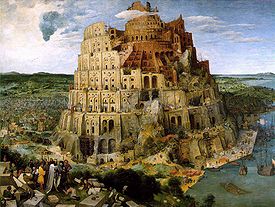
Monteros de Espinosa
Encyclopedia

Bodyguard
A bodyguard is a type of security operative or government agent who protects a person—usually a famous, wealthy, or politically important figure—from assault, kidnapping, assassination, stalking, loss of confidential information, terrorist attack or other threats.Most important public figures such...
unit of Royal Guard
Royal Guard
A Royal Guard describes any group of military bodyguards, soldiers or armed retainers responsible for the protection of a royal person, such as Emperor/Empress, King/Queen, or Prince/Princess...
s in Europe. Founded by the Counts of Castile around the year 1006 and kept in service by the Castilian Sovereigns and posterior Dynasties that inherited their Kingdoms and united with. It is still part of the Spanish Guardia Real
Spanish Royal Guard
The Royal Guard is an independent unit of the Spanish Armed Forces dedicated to the military protection of H.M. the King of Spain and the members of the Spanish Royal Family. It currently has a strength of 1,900 troops. While the guard does participate in parades and other ceremonial events, it...
.
Originally a small tight unit of five to nine men who like their contemporary Houscarls or the Somatophylakes
Somatophylakes
Somatophylakes , in its literal English translation from Greek, means "bodyguards".The most famous body of somatophylakes were those of Philip of Macedon and Alexander the Great. They consisted of seven men, drawn from the Macedonian nobility, who also acted as high-ranking military officers,...
of Alexander the Great accompanied the Counts and later Kings everywhere, it was raised successively to their highest number in times of the Emperor Charles who extended their number from 48 to 75 in order to take custody night and day of his Queen Mother Joan, the Mad. They had no other officer than the King himself as its Captain and in his absence the King's Right Arm
Constable of Castile
Constable of Castile was a title created by John I, King of Castile in 1382, to substitute the title Alférez Mayor del Reino. The constable was the second person in power in the kingdom, after the King, and his responsibility was to command the military in the absence of the ruler.In 1473 Henry IV...
was its Lieutenant.
It was a privilege reserved only for the local Hidalgo
Hidalgo (Spanish nobility)
A hidalgo or fidalgo is a member of the Spanish and Portuguese nobility. In popular usage it has come to mean the non-titled nobility. Hidalgos were exempt from paying taxes, but did not necessarily own real property...
s of the oldest mountainous districts of the County of Castile at the time of its foundation, who could ask for or be asked by the Crown for its service at anytime. With time their service was limited only to Night time and the most sensitive occasions, distinguished with the Honour of watching the Monarchs closest privy Chambers and doing direct custody of the Royal persons during sickness, as well as watching and carrying from the moment of death the Royal Corpses to burial. Birth, Baptism, Marriage and Coronation
Coronation
A coronation is a ceremony marking the formal investiture of a monarch and/or their consort with regal power, usually involving the placement of a crown upon their head and the presentation of other items of regalia...
. All the most intimate aspects of Guard duties.
With time, their functions became less military and mostly like the Gentlemen at Arms and the Yeomen of the Guard
Yeomen of the Guard
The Queen's Body Guard of the Yeomen of the Guard are a bodyguard of the British Monarch. The oldest British military corps still in existence, it was created by Henry VII in 1485 at the Battle of Bosworth Field. As a token of this venerability, the Yeomen still wear red and gold uniforms of Tudor...
limited to Palace duty. The last time they were in campaign escorting their Monarch in the field was in the side of Carlos VII
Carlos, Duke of Madrid
Infante Carlos María de los Dolores Juan Isidro José Francisco Quirin Antonio Miguel Gabriel Rafael de Borbón y Austria-Este, Duke of Madrid was the senior member of the House of Bourbon from 1887 until his death...
during the Carlist Wars
Carlist Wars
The Carlist Wars in Spain were the last major European civil wars in which contenders fought to establish their claim to a throne. Several times during the period from 1833 to 1876 the Carlists — followers of Infante Carlos and his descendants — rallied to the cry of "God, Country, and King" and...
.I

